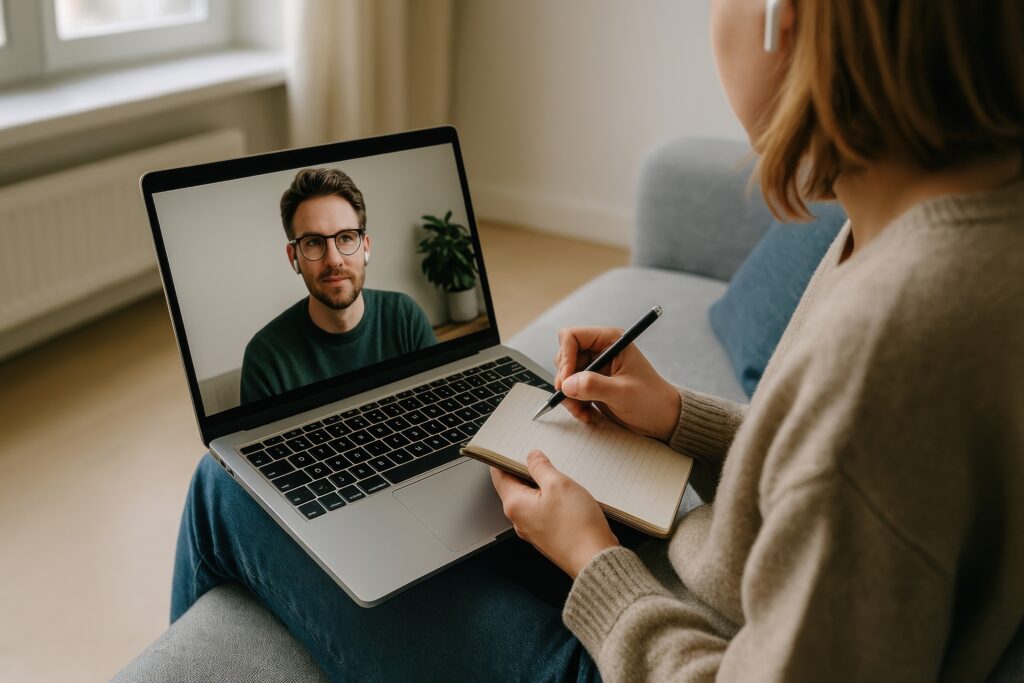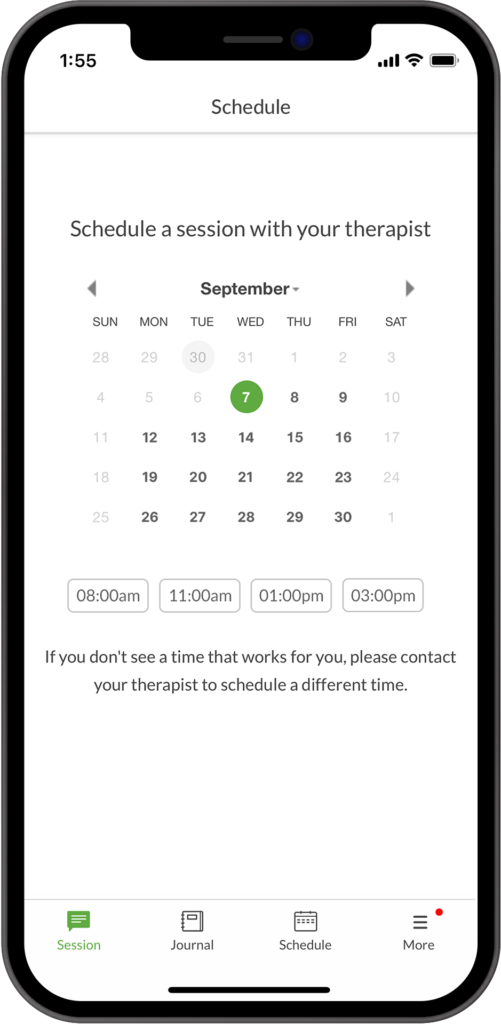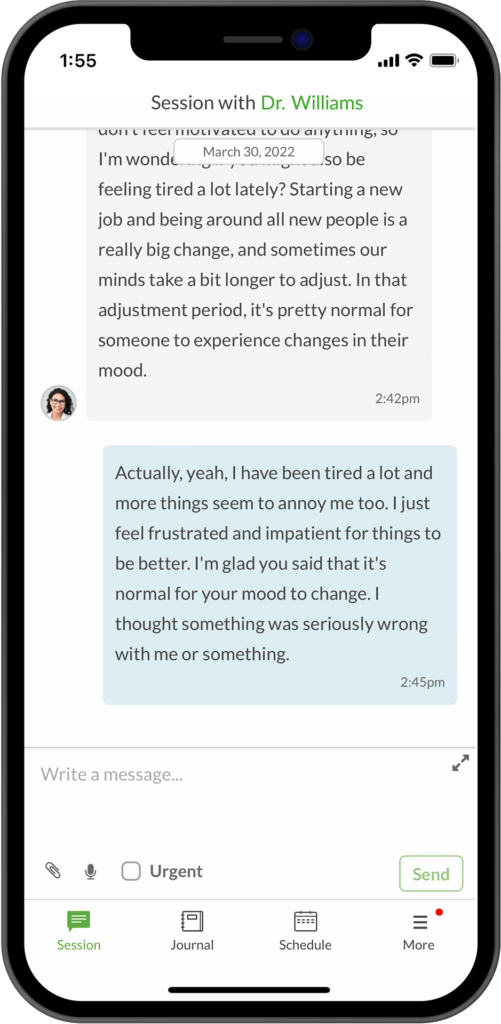Table of Contents
The Quiet Revolution
There’s a quiet revolution happening in the mental health space and BetterHelp is leading the charge.
Therapy seems to be one of those things that is being embraced more than ever before which is most definitely a good thing.

I still remember my first therapy session. The nervous drive across town, circling the block three times looking for parking, wondering if someone I knew might see me walking into that nondescript building. Then the waiting room with its outdated magazines and vague anxiety hanging in the air. By the time I actually sat down with my therapist, I was already emotionally drained—and we hadn’t even started yet.
That was before I discovered online therapy. Before I understood how something as simple as changing the setting could completely transform the therapeutic experience.
Breaking Down the Barriers to Mental Health
For decades, therapy has remained inaccessible to many who need it most. Geographic limitations, scheduling conflicts, transportation issues, prohibitive costs—these practical hurdles have kept countless people from getting help. Then there are the less tangible but equally powerful barriers: stigma, anxiety about the process, and the vulnerability required to physically walk into a therapist’s office.
What’s remarkable about the rise of online therapy isn’t just the convenience factor—though that’s significant. It’s how this shift in medium has fundamentally democratized access to mental health support, creating pathways for people who would otherwise never have crossed the threshold of a therapist’s office.
The BetterHelp Revolution
At the forefront of this transformation stands BetterHelp, now the world’s largest online therapy platform. What makes their approach revolutionary isn’t just the technology—it’s their understanding that therapy isn’t one-size-fits-all. Effective therapy requires the right match between client and therapist, something traditional in-person therapy often makes difficult to achieve.
I’ve spoken with dozens of people about their BetterHelp experiences, and a common theme emerges: the platform’s matching system often connects them with therapists they might never have found in their local area. Whether it’s a rural conservative Christian finding a therapist who understands their faith, a transgender teen connecting with a specialist in gender identity, or a busy executive who needs flexible scheduling, BetterHelp’s reach makes it possible.
The Science Behind the Screen
Initial skepticism about online therapy was natural and healthy. Could a therapeutic relationship really develop through a screen? Would something essential be lost without shared physical space?
Research has delivered a clear answer: online therapy works. Multiple peer-reviewed studies have shown comparable outcomes between online and in-person therapy for many common mental health concerns, including depression, anxiety, and PTSD. For some clients, particularly those with social anxiety, agoraphobia, or trauma histories, the online setting actually enhances their ability to engage fully in the therapeutic process.
What’s particularly interesting is how different aspects of online therapy benefit different people. Some find text-based communication allows them to express thoughts they’d struggle to verbalize. Others appreciate being in their own safe environment during emotionally challenging sessions. Many discover that eliminating commute time makes consistent attendance possible for the first time.
Beyond Convenience: The Transformative Difference
While convenience is certainly a factor, the transformative power of platforms like BetterHelp goes much deeper. Here’s what makes online therapy genuinely revolutionary:
🔸 Continuity of care: When life changes—moves, job shifts, family responsibilities—traditional therapy often gets disrupted. Online therapy travels with you, maintaining the therapeutic relationship through life’s transitions.
🔸 Reduced power dynamics: The traditional therapy office subtly reinforces the expert/patient dynamic. Meeting online creates a more egalitarian relationship where many clients feel more empowered to direct their therapeutic journey.
🔸 Customized communication: Some thoughts are easier to express in writing. Others require the nuance of spoken conversation. Online therapy platforms allow for multiple communication channels—text, voice, video—adapting to your needs and comfort level.
🔸 Cultural competence: Geographic limitations often restrict access to therapists who understand specific cultural backgrounds or life experiences. Online platforms draw from a vastly larger pool of therapists, increasing chances of finding someone who truly “gets” your particular context.
Finding Your Match
What ultimately matters in therapy isn’t the platform but the relationship. The research is unequivocal: the quality of the therapeutic alliance—how well you and your therapist connect—is the strongest predictor of positive outcomes.
This is where BetterHelp’s approach truly shines. Their matching system considers dozens of factors beyond just your presenting concern: communication preferences, background, values, therapeutic approach, and more. And if the match isn’t right? Switching therapists is straightforward, without the awkwardness that often accompanies that transition in traditional settings.
A Personal Journey
Therapy, whether online or in person, is always a deeply personal journey, one that can lead down unconventional paths toward real growth and self-discovery. It creates space to examine your life with compassionate curiosity, guided by someone with both professional training and human wisdom. In that space you learn to sit with difficult emotions, challenge longstanding patterns, and build a more authentic relationship with yourself and others.
What online platforms like BetterHelp offer doesn’t replace the essential human process of therapy. What they do is clear away the barriers that have kept so many from ever beginning this journey, opening pathways to mental health support that fit more seamlessly into modern life.
For me, discovering online therapy meant no more circling the block looking for parking. No more awkward waiting room encounters. No more rescheduling when life got complicated. Instead, I found consistent support that moved with me through life changes, available when and how I needed it.
And isn’t that what therapy should be? Not another stressor to manage, but a reliable source of support that meets you where you are—both figuratively and literally.
If you’ve been considering therapy but haven’t taken the step, platforms like BetterHelp might offer exactly the approach you’ve been waiting for. Because the most important therapy session is the one that actually happens.
And if you’re still on the fence, this post on the signs you may need a therapist can shine a little extra light on the path forward
Ready to Get Started With BetterHelp?
If you’re interested in learning more about online therapy, I recommend checking out BetterHelp. They offer online therapy sessions with licensed therapists at an affordable price point.
As you know I’m a huge proponent of Mental Wellness and ensuring we all get the help we need when we need it. And of course, I don’t want you just to get any help I want you to get the right help so I am now sponsored by BetterHelp.
BetterHelp is the world’s largest therapy service, and it’s 100% online. With a network of over 25,000 licensed and experienced therapists who can help you with a wide range of issues, BetterHelp makes professional support accessible anytime and anywhere.
Just click on the link below, answer a few questions and get matched with a therapist from the network.
One of the most amazing features of BetterHelp, if you don’t jive with your therapist you can switch to a new one that’s a better fit for you any time free of charge.
With BetterHelp, you get the same professionalism and quality you expect from in-office therapy, but with a therapist who is custom-picked for you, more scheduling flexibility, and at a more affordable price.



And since therapy is ultimately about learning to hear yourself more clearly, you can take that same practice of listening one step further by tuning in to the Blossom Your Awesome Podcast. With more than 290 expert conversations waiting for you, it is a place where powerful stories and practical wisdom come alive.
Let the act of listening itself become your bridge between personal growth and professional support, guiding you toward deeper self-understanding and a stronger sense of connection.
Comments +
BetterHelp Is Transforming Mental Health Care
Mental Health